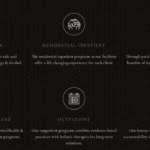Building Trust: How to Communicate with Families About Addiction Treatment Referrals
When a loved one is struggling with addiction, it can be a challenging and heart-wrenching experience for their family. One crucial step in helping them on their path to recovery is guiding them toward addiction treatment. However, navigating this conversation requires empathy, understanding, and a commitment to building trust. In this blog post, we will explore effective strategies for communicating with families about addiction treatment referrals, with the ultimate goal of supporting their loved ones on the journey to recovery.
Tips for Communicating
1. Choose the Right Moment:
Initiating the conversation at an appropriate time is vital for its success. Ideally, select a moment when both you and the family member are calm and free from distractions. Avoid bringing up the topic during heated arguments or highly emotional situations, as it may lead to resistance or defensiveness.
Example: Consider scheduling a time to talk, such as a weekend afternoon when everyone is at home and available, rather than discussing it in the midst of a stressful situation.
2. Express Concern and Empathy:
Start the conversation by conveying genuine concern and empathy for the individual struggling with addiction and their family. Let them know that you acknowledge the difficulty of the situation and that your intentions are rooted in caring and support.
Example: “I’ve noticed how challenging this has been for you, and I want you to know that I genuinely care about [Name]’s well-being. We’re in this together.”
3. Listen Actively:
Active listening involves giving the family member your full attention, without interruption or judgment. It’s crucial to create a safe space for them to share their thoughts, feelings, and concerns openly.
Example: While they speak, maintain eye contact, nod in understanding, and offer verbal cues like “I hear you” or “Tell me more.”
4. Educate About Addiction:
Many individuals and families have misconceptions about addiction. Offering accurate information about addiction as a disease helps dispel myths and reduces blame or guilt.
Example: “It’s important to understand that addiction is not a choice or a moral failing. It’s a medical condition that affects the brain’s functioning.”
5. Highlight the Benefits of Treatment:
Emphasize the positive outcomes that addiction treatment can offer. Describe how professional help can equip the individual with the tools and support needed to begin their journey to recovery.
Example: “Treatment can provide a path to sobriety, improved mental and physical health, restored relationships, and a brighter future.”
6. Share Resources:
Provide information about addiction treatment centers, programs, and professionals. Share brochures, websites, or contact details for local resources that the family can explore when considering treatment options.
Example: “Here are some reputable addiction treatment centers nearby. Take your time to review them and see what might be the best fit for [Name].”
7. Respect Autonomy:
It’s crucial to acknowledge that the individual struggling with addiction ultimately has the authority to make decisions about their treatment. Avoid pressuring them into treatment, as this can lead to resistance. Instead, promote open dialogue and decision-making autonomy.
Example: “While we strongly encourage treatment, we respect [Name]’s autonomy in making this decision. We can offer support, but the choice is ultimately theirs.”
8. Offer Your Support:
Reiterate your commitment to supporting the family throughout the process. Be clear about the ways you are willing to assist, whether it’s attending appointments, providing emotional support, or helping with logistics.
Example: “I want you to know that I’m here for you every step of the way. We’ll navigate this journey together as a supportive team.”
9. Follow Up:
After the initial conversation, make a point to follow up with the family to check on their well-being, address any questions or concerns they may have, and offer ongoing support. Consistent communication demonstrates your ongoing commitment to their needs.
Example: “I’ve been thinking about our conversation. How have things been since then? Do you have any questions or need more information?”
Conclusion
Effectively communicating with families about addiction treatment referrals is a delicate and vital process in supporting individuals on their path to recovery. By implementing these steps, you can create an environment of trust and empathy that encourages open dialogue and informed decision-making. Remember that your role as a source of support and understanding can make a significant impact on both the family and their loved one as they embark on the journey to overcome addiction. Building trust through compassionate communication can be a crucial first step towards lasting recovery and healing.










